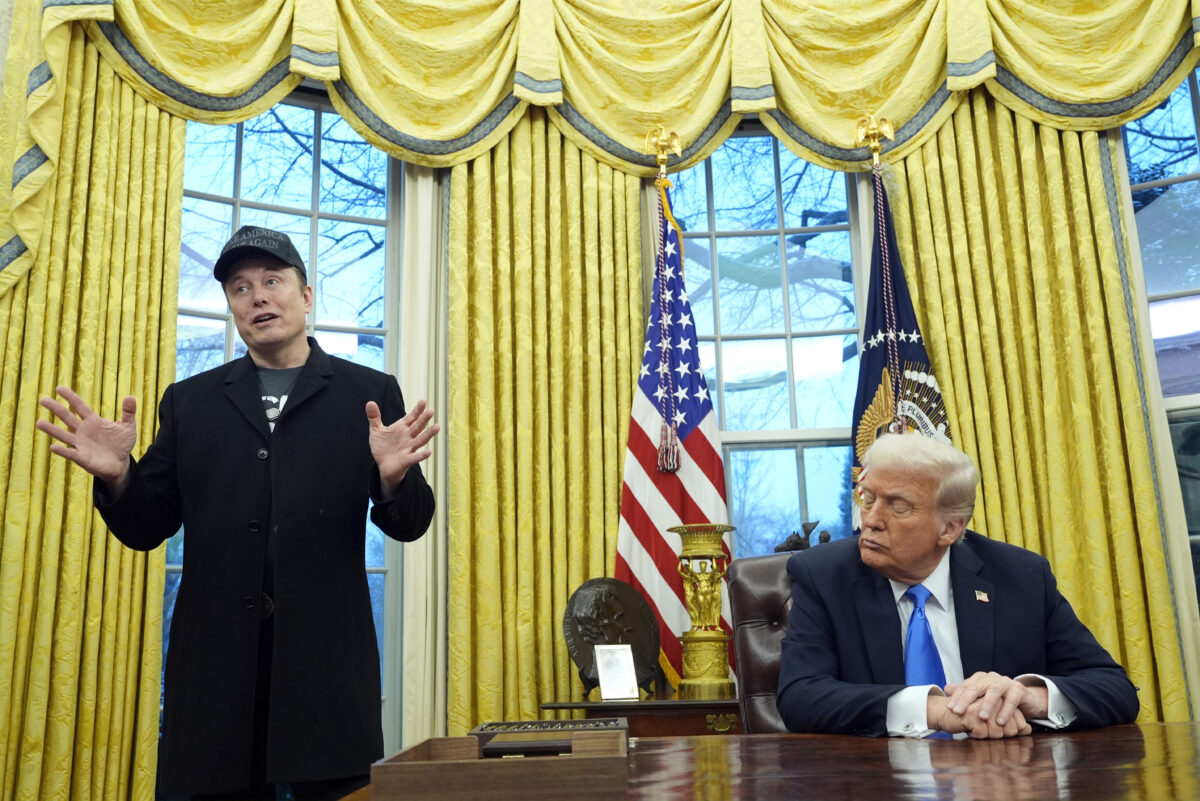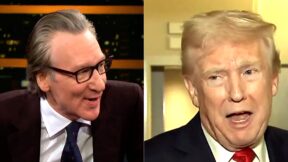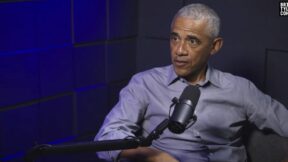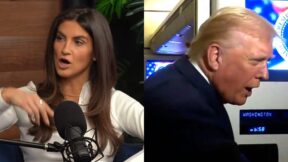Trump Lawyer Tells Supreme Court Elon Musk Is ‘Not Part of’ DOGE — Even Though Trump Has Repeatedly Said Musk is ‘In Charge’ of It

AP Photo/Alex Brandon
A new filing by Solicitor General John Sauer seems to contradict the repeated claims by President Donald Trump regarding the actions of the “Department of Government Efficiency” (DOGE) and Elon Musk’s role.
The viral image of Musk literally holding up a chainsaw on stage swiftly became a symbol for his critics, who accused him and DOGE of metaphorically attempting to chainsaw vast swaths of the federal government, often in violation of the U.S. Constitution and federal law. Numerous lawsuits have been filed in response to DOGE’s activities.
Trump himself has added to the confusion regarding Musk’s actual role, saying back in February that he “signed an order creating [DOGE] and put a man named Elon Musk in charge.” Meanwhile, Amy Gleason was named as the Acting Administrator of DOGE, and several of the lawsuits have zeroed in on how her appointment was secretive at first, questioning how much control she actually has with Musk having such a visible role as the “de facto Head of DOGE.”
In this new emergency application filed with the Supreme Court, Sauer sought to block orders from the U.S. District Court for the District of Columbia that directed DOGE to produce documents requested by a government watchdog organization, Citizens for Responsibility and Ethics in Washington (CREW).
In the 35-page legal memorandum, Sauer argued that DOGE is merely an advisory group and not an actual federal agency, and therefore should be exempt from having to produce public records under the Freedom of Information Act. The district court judge disagreed in March, ruling that DOGE was “likely covered by FOIA and that the public would be irreparably harmed by an indefinite delay in unearthing the records CREW seeks.”
Sauer’s legal argument represents a “retreat” from Musk’s public vow that DOGE would operate with “maximum transparency,” reported Axios’ Andrew Childers.
The pleading also contained a sentence that represented another retreat from what Trump has claimed about Musk’s role. As noted by Lawfare senior editor Anna Bower, Sauer explicitly argued that Musk was “not part of” DOGE.
On page 17 of the pleading, Sauer takes issue with the district court’s finding that DOGE exerted “substantial independent authority” from the White House, arguing that was misguided, and defines Musk’s role as merely “a White House advisor, who is not part of [DOGE]”:
Senior advisors frequently spearhead the President’s policy agenda in collaboration with relevant agency officials without exercising any independent legal authority. In any event, the court did not address the government’s explanation that the cited press reports do not refer to USDS activities; they mention Elon Musk (a White House advisor, who is not part of USDS), agency activities (which would be activities of Agency DOGE Teams or Team Leads, not of USDS), or refer generally to “DOGE,” an umbrella term for the executive-wide initiative and not USDS specifically.
CREW released a statement in response to Sauer’s motion: “While DOGE continues to attempt to fight transparency at every level of justice, we look forward to making our case that the Supreme Court should join the District Court and Court of Appeals in allowing discovery to go forward.”
New: The Mediaite One-Sheet "Newsletter of Newsletters"
Your daily summary and analysis of what the many, many media newsletters are saying and reporting. Subscribe now!






Comments
↓ Scroll down for comments ↓